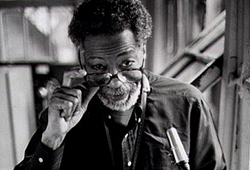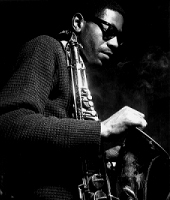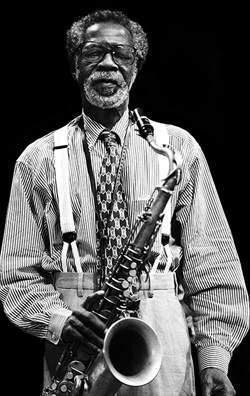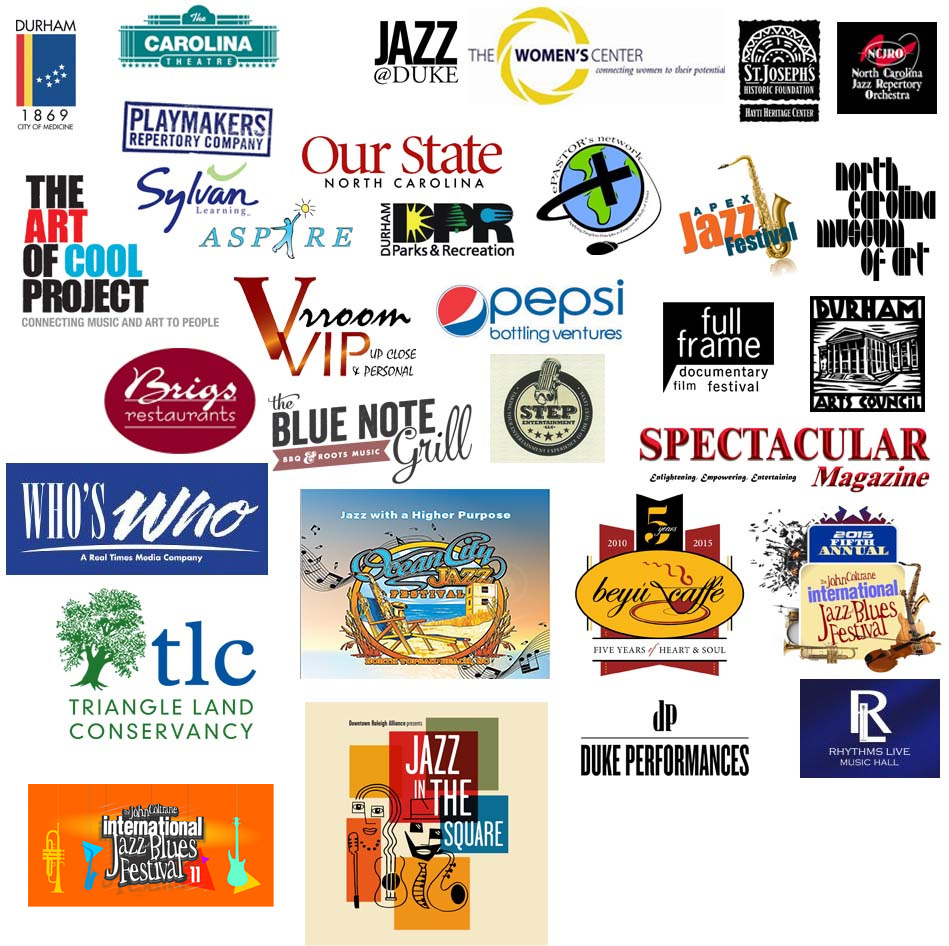Joe Henderson

Joe Henderson born April 24, 1937, was an American jazz tenor saxophonist. Born in Lima, Ohio, he studied music at Kentucky State College and Wayne State University before playing in Detroit at the beginning of his career.
By eighteen, Henderson was active on the Detroit jazz scene of the mid-’50s, playing in jam sessions with visiting New York stars. The diverse musical opportunities prompted Joe to learn flute and bass, as well as further developing his saxophone and compositional skills. By the time he arrived at Wayne State University, he had transcribed and memorized so many Lester Young solos that his professors believed he had perfect pitch.

After a two years in the U.S. Army from 1960 to 1962, Joe arrived in New York where trumpeter Kenny Dorham provided valuable guidance. Although Henderson’s earliest recordings were marked by a strong hard-bop influence, his playing encompassed not only the bebop tradition, but R&B, Latin, and avant-garde as well. He soon joined Horace Silver’s band and provided a seminal solo on the jukebox hit “Song for My Father.” After leaving Silver’s band in 1966, Henderson resumed freelancing and also co-led a big band with Kenny Dorham. His arrangements for the band went unrecorded until the release of “Joe Henderson Big Band” (Verve) in 1996.
From 1963 to 1968 Joe appeared on nearly thirty albums for Blue Note. The recordings ranged from relatively conservative hard-bop sessions to more avant-garde explorations. He played a prominent role in many landmark recordings: Horace Silver’s swinging and soulful “Song For My Father,” Herbie Hancock’s dark and densely orchestrated “Prisoner,” and Andrew Hill’s avant-garde “Black Fire.” In 1967, there was a notable, but brief, association with Miles Davis’s famous quintet featuring Herbie Hancock, Wayne Shorter, Ron Carter, and Tony Williams. Although the band was never recorded, Henderson is reputed to have occasionally stolen the show.

Signing with Orrin Keepnews’s Milestone label in 1967 marked a new phase in Henderson’s career. It was during this time that Henderson began to experiment with increasingly avant-garde structures, jazz-funk fusion, studio overdubbing, and other electronic effects.
Henderson’s sound can float prettily like Stan Getz or Lester Young but he can also dig in with the bluesy fervor of T-Bone Walker or the intensity of John Coltrane. In a March 1993 Down Beat interview Joe noted the influence of literature in his playing. “I try to create ideas in a musical way the same as writers try to create images with words. I use the mechanics of writing in playing solos. I use quotations, commas, and semicolons.” The increasing complexity and ornamental nature of his current output suggests Henderson has created his own unique vocabulary of phrases, licks, and saxophone effects. Joe Henderson died on June 30, 2001 at the age of 64.

